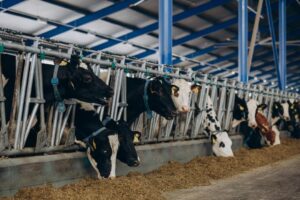The Evolution of Legal Support in Modern Families

The nuclear family has, for decades, been the cornerstone of many societies. However, in contemporary times, families are diversifying in form and function. Whether it’s co-parenting, blended families, or same-sex couples, the essence of what defines a family has been broadening. With this, the demand for legal support has also seen significant shifts.
The Diverse Landscape of Modern Families
The concept of family has evolved from the traditional image of a mother, father, and children to include diverse configurations. The increasing acceptance of same-sex marriages, the normalisation of cohabitation before marriage, and blended families resulting from second or third marriages have all contributed to this transformation.
In many cases, these alternative family structures face unique challenges. They might encounter societal scrutiny, complexities in adopting children, or hurdles in acquiring legal recognition for their relationships.
Adapting Legal Frameworks
While the legal industry has, historically, been slow-moving in adapting to changes, the rapid shift in family dynamics has necessitated a more agile approach. Lawyers now need to acquaint themselves with varied familial scenarios and the intricacies they bring to the table.
Legal Challenges in Blended Families
Blended families often face distinct challenges when it comes to matters of inheritance, custody, and financial responsibilities. While some countries have concrete legal structures addressing these issues, many still tread in grey areas.
In Australia, for instance, a blended family might need to approach the legalities of wills and estate distribution differently. Since children from previous marriages come into play, the dynamics of inheritance become multifaceted.
It’s in such intricate scenarios that having knowledgeable legal aid becomes indispensable. Engaging with the best family legal teams in Sydney, for instance, can provide clarity and ensure that every family member’s rights are upheld.
Navigating Legalities for Same-Sex Couples
The journey towards the legal acceptance of same-sex marriages has been long and tumultuous. Even today, couples face barriers when they decide to start families. Whether it’s the adoption process or surrogacy arrangements, same-sex couples often find themselves navigating a maze of legal complexities.
Having a seasoned legal professional, familiar with the ever-evolving laws around this space, can make all the difference. They can provide guidance on everything from property rights to parenthood.
Protecting Children’s Rights
Irrespective of the type of family, the wellbeing and rights of children remain paramount. The legal industry must ensure that children’s rights aren’t compromised, even in the most convoluted family structures. This might include safeguarding their financial interests, ensuring their emotional well-being, or protecting them in custody battles.
With the concept of family becoming increasingly inclusive, it’s vital to address the rights of every child, irrespective of their familial backdrop. In doing so, referencing established child rights frameworks can offer a solid foundation.
In Conclusion
The multifaceted nature of modern families necessitates a legal system that’s both adaptive and empathetic. As family structures become more varied and intricate, the need for qualified, compassionate, and knowledgeable legal support grows. Whether it’s a blended family trying to navigate inheritance or a same-sex couple seeking to adopt, having a solid legal ally can be the defining factor in ensuring that the essence of family – love, support, and unity – remains uncompromised.
…


